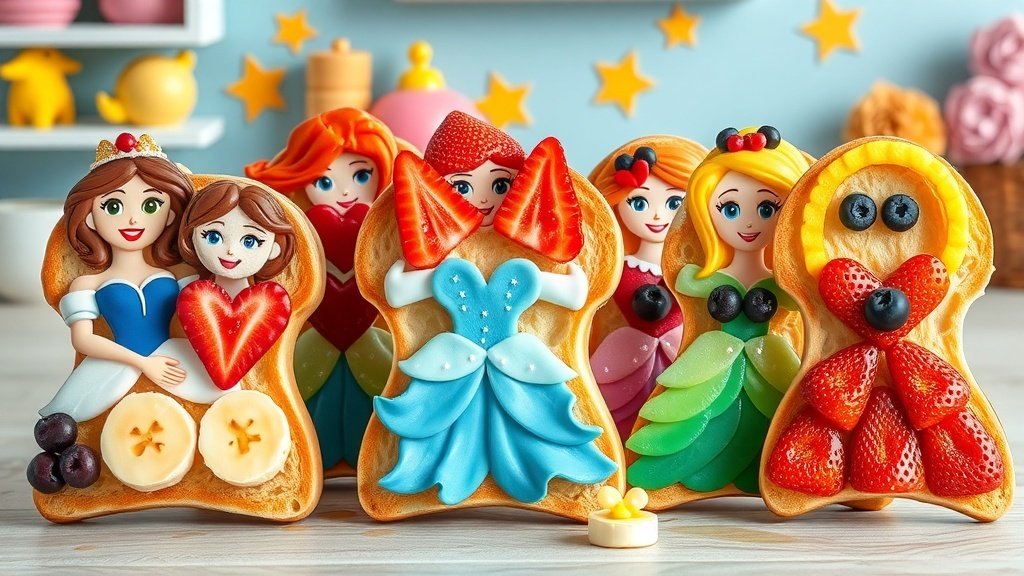I’ll never forget the grocery store encounter that changed my perspective. A stranger glanced at my daughter, then asked with raised eyebrows: “When’s the next one coming?” Before I could answer, she sighed, “Only children always struggle socially.” Her words stung—not because they held truth, but because they revealed how casually we judge family choices.
Research from The Journal of Clinical Child & Adolescent Psychology shows constant judgment doesn’t just hurt feelings—it reshapes how kids interact with the world. Children exposed to frequent criticism often avoid eye contact, missing crucial social cues. This can create cycles of anxiety rather than the confident connections we want for them.
Let’s flip the script. Families come in countless shapes, each with unique strengths. Whether there’s one child or five, what matters is creating environments where love—not unsolicited opinions—takes center stage. When we question parenting decisions, we risk undermining the very support systems kids need to thrive.
Here’s my radical proposal: Instead of tallying siblings, let’s celebrate the creativity, resources, and intentionality poured into every family’s story. After all, building compassionate humans has nothing to do with headcounts and everything to do with heart.
Starting the Conversation on Family Diversity
At a backyard barbecue last summer, a relative eyed my seven-year-old and asked, “Who’s going to keep her company when you’re gone?” I smiled sweetly while mentally drafting this guide. Conversations about family size often feel less like small talk and more like a pop quiz on life choices.
My Journey as a Parent
Over six years of parenting, I’ve collected more unsolicited baby advice than mismatched sippy cups. The classics include:
- “Only children turn out weird” (Spoiler: My kid’s weirdness is 100% organic)
- “You’ll regret not giving them a built-in best friend!”
- “But who will take care of you when you’re old?” (Plot twist: I’m training the dog)
These comments taught me something crucial: When we reduce family success to sibling counts, we erase the beautiful complexity of modern parenting. My experience raising one child has been like crafting a custom masterpiece rather than mass-producing prints.
Why I’m Sharing This Guide
I created this resource because:
- Parents deserve better than judgmental checkouts at Target
- Children thrive when we focus on quality connections over quantity
- Every “complete” family looks different
Through trial, error, and enough goldfish crackers to fill a swimming pool, I’ve learned that defending family diversity starts with humor, facts, and the occasional well-timed eye roll. Let’s build villages that uplift parents instead of auditing their family trees.
Understanding Criticism Versus Constructive Guidance
During a recent playdate, I watched a mom snap, “Stop climbing—you’ll break something!” Her child froze mid-adventure. Later, I tried a different approach with my own: “Let’s find safer ways to explore.” The result? A makeshift obstacle course using couch cushions. Both situations addressed behavior—only one preserved curiosity.
The Impact of Constant Criticism
Neuroscience reveals harsh words act like sandpaper on developing brains. Studies show frequent criticism makes children hyper-alert to disapproval, causing them to miss social smiles or friendly gestures. I learned this the hard way when my “stop slouching” comments made my kid hunch like a question mark around adults.
Persistent negativity trains brains to:
- Anticipate failure before trying new things
- View mistakes as catastrophes rather than lessons
- Seek approval through perfectionism
Benefits of Encouragement in Parenting
Positive reinforcement works like cognitive fertilizer. When we highlight efforts (“I saw how carefully you stacked those blocks”), kids’ brains release dopamine—the “let’s do that again” chemical. My daughter’s science fair flop became a win when I praised her persistence: “Three failed hypotheses? That’s how real discoveries happen!”
Encouragement-focused parenting helps children:
- Develop internal motivation rather than fear-based compliance
- Build problem-solving muscles through guided reflection
- Maintain open communication channels during challenges
The way we correct matters more than the correction itself. Harsh criticism is like using a foghorn to request quiet—it gets attention but damages hearing. Thoughtful guidance? That’s the secret handshake to raising resilient humans.
STOP CRITICIZING THOSE WITH ONLY ONE CHILD
A colleague once joked that my family photo looked “half-finished” with just three of us. This casual remark captures the absurd scrutiny parents face when their household doesn’t match societal checklists. Let’s unpack why these assumptions crumble under scrutiny.
Exploring Social Stigmas Around Family Size
The myth that siblings guarantee friendship persists like glitter after craft hour—sticky and everywhere. I’ve met adults who haven’t spoken to their brothers in years, while my niece’s only-child crew coordinates weekend adventures like a tiny United Nations. Social skills develop through varied interactions, not sibling headcounts.
Financial realities often silence critics faster than a toddler spotting broccoli. When daycare costs rival Ivy League tuition, many parents choose quality over quantity. Others navigate medical mountains—from infertility marathons to high-risk pregnancies—that make expanding their family physically or emotionally impossible.
Dispelling Common Misconceptions
Let’s bust three persistent myths:
- “Only children are spoiled”: My kid earns screen time by feeding the cat—hardly royal treatment
- “You’re denying them companionship”: Playdates and cousins provide rich social layers
- “It’s the easy way out”: Parenting isn’t a difficulty contest—it’s about matching capacity to responsibility
Families thrive when we honor different paths. Whether raising one child or six, what matters isn’t the number around the table, but the love served with each meal.
Practical How-To Strategies for Embracing One-Child Families
At my local coffee shop last Tuesday, a well-meaning neighbor leaned over my latte and asked, “Don’t you worry they’ll get lonely?” I sipped slowly, then deployed my secret weapon: humor. Mastering these situations requires equal parts wit and strategy—like being a parenting ninja with a joke book.
Witty Communication Tactics
I’ve turned awkward questions into comedy gold. When someone asks about expanding our family, I smile and say, “We’re perfecting our masterpiece before making prints.” This approach does three things:
- Disarms critics with laughter
- Shifts focus to quality over quantity
- Leaves room for quick topic changes
For persistent interrogators, I use the “mirror method.” When asked, “When’s the next time you’ll try for a boy?” I respond, “When’s the next time you’ll try skydiving?” Suddenly, everyone remembers how personal choices should stay personal.
Creating Positive Routines and Reminders
Our fridge boasts a “Comeback Calendar” with pre-written responses. This habit saves mental energy during stressful moments. Try these time-tested tricks:
- Code words with your partner (“Banana” means rescue me from Aunt Karen)
- Weekly practice sessions for handling common comments
- Visual cues like bracelets reminding us to lead with kindness
Last month, I started sharing fun facts when comments arise. Did you know 20% of U.S. families have one child? Watching critics’ faces shift from judgment to curiosity proves knowledge truly is power—and way more fun than frustration.
Embracing the Unique Advantages of an Only Child
Last month at the playground, a dad pushing twin toddlers looked at my relaxed coffee sipping and asked, “How’d you get the luxury version?” His joke revealed an unspoken truth: Single-child families unlock unexpected perks that deserve celebration.
Lifestyle Perks and Flexibility
Our home operates like a well-rehearsed jazz trio rather than a chaotic circus. With one child, we skip the endless negotiations between siblings over screen time or dessert portions. Weeknight dinners involve actual conversation instead of refereeing food fights.
Consider these game-changing benefits:
- Spontaneous road trips requiring just one car seat and snack pack
- Financial breathing room for music lessons and college savings
- Energy reserves for bedtime stories instead of survival-mode parenting
When friends juggle multiple nap schedules, we’re mastering the art of last-minute adventures. Last summer, we booked a cabin trip three hours before departure—something my mom-friend-of-three calls “parenting witchcraft.”
The changes in our daily rhythm allow focused attention during crucial developmental months. While others split resources between toddlers and babies, we channel ours into customized experiences. It’s not about having less—it’s about creating more of what matters.
Managing External Pressures with Humor and Heart
During my daughter’s last pediatrician visit, the nurse practitioner eyed my chart and asked, “Planning to give this superstar a teammate soon?” I grinned while mentally rehearsing my anti-judgment playbook. Handling unwanted opinions about family size requires the finesse of defusing a toddler’s meltdown in the cereal aisle—equal parts strategy and survival instinct.
Handling Unsolicited Criticism
I’ve mastered the art of conversational jiu-jitsu. When relatives ask about expanding our family during holiday dinners, I counter with, “We’re too busy perfecting our synchronized pancake-flipping routine!” This approach achieves three goals:
- Disarms critics with humor
- Protects my emotional energy
- Teaches my child how adults handle awkwardness
My spouse and I developed a secret signal system—scratching our nose means “rescue me from this baby-making interrogation.” Last week at the park, we used it when another parent insisted single children become “socially stunted adults.” We excused ourselves to “check the weather radar,” then laughed all the way to the ice cream truck.
For persistent critics, I deploy curiosity like a verbal shield. “What makes you ask that?” often reveals their own insecurities. When my neighbor questioned our family size, she admitted feeling overwhelmed raising three toddlers. Our chat became a therapy session about parental burnout.
Every time someone voices opinions about my parenting choices, I treat it like free training for emotional resilience. These interactions strengthen my ability to honor our family’s path while respecting others’ journeys—even when their maps look completely different.
Final Reflections on Embracing Diverse Family Choices
Parenting often feels like navigating a theme park designed by someone else—full of unexpected turns and questionable safety rails. Over the years, I’ve learned our family’s ride operator manual works best when we ignore the crowd’s shouted directions.
Every child’s story unfolds differently. Some families bloom with laughter around crowded dinner tables, while others thrive during quiet museum Saturdays. What matters isn’t the number of tiny humans in your home, but the way you help them grow into kind, curious people.
I’ve swapped judgmental playground chats for conversations that spark real change. When another mom asks why my kid plays solo with toy dinosaurs, I grin: “She’s directing Jurassic Park: Toddler Edition.” Humor disarms critics better than any parenting manifesto.
Let’s stop treating family choices like dirty dishes needing correction. Whether your clan fills a minivan or fits in a convertible, what shines through is love’s messy, glorious fingerprint. Here’s to raising kids who value connection over headcounts—one intentional day at a time.






